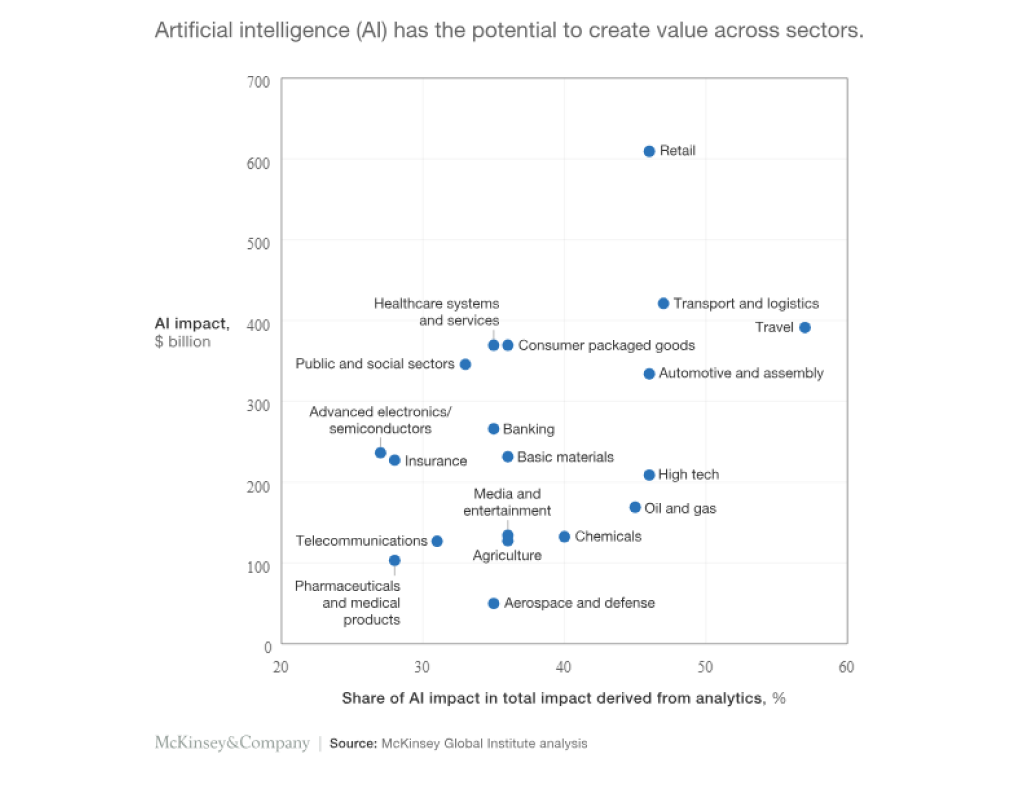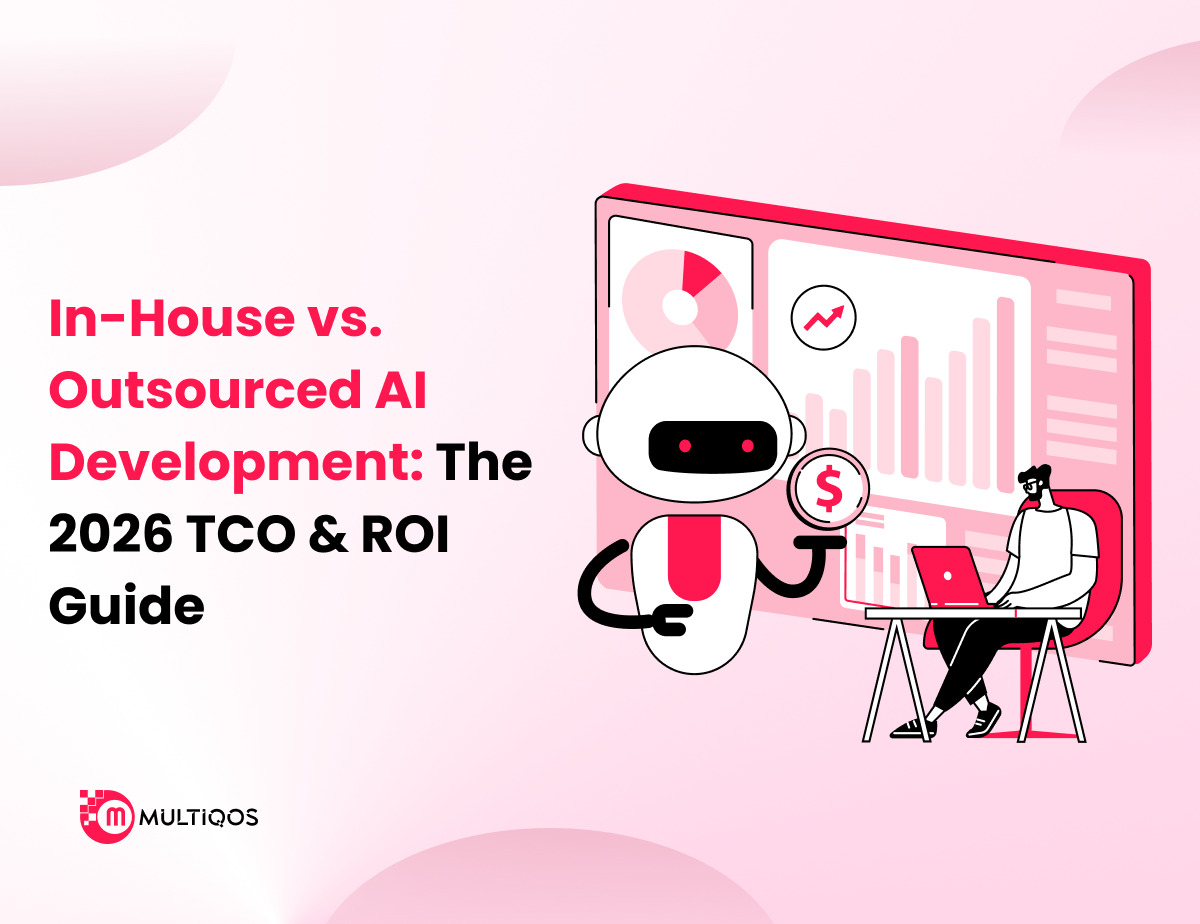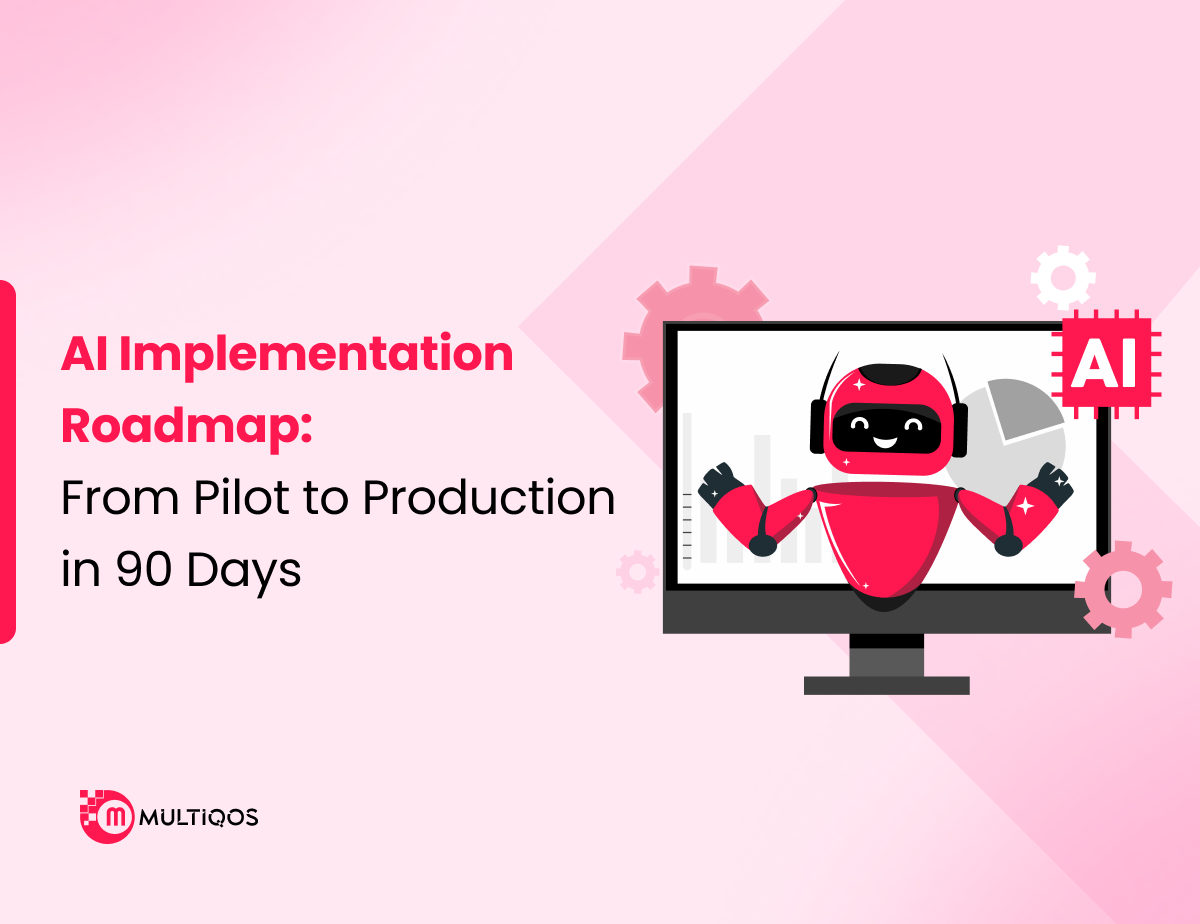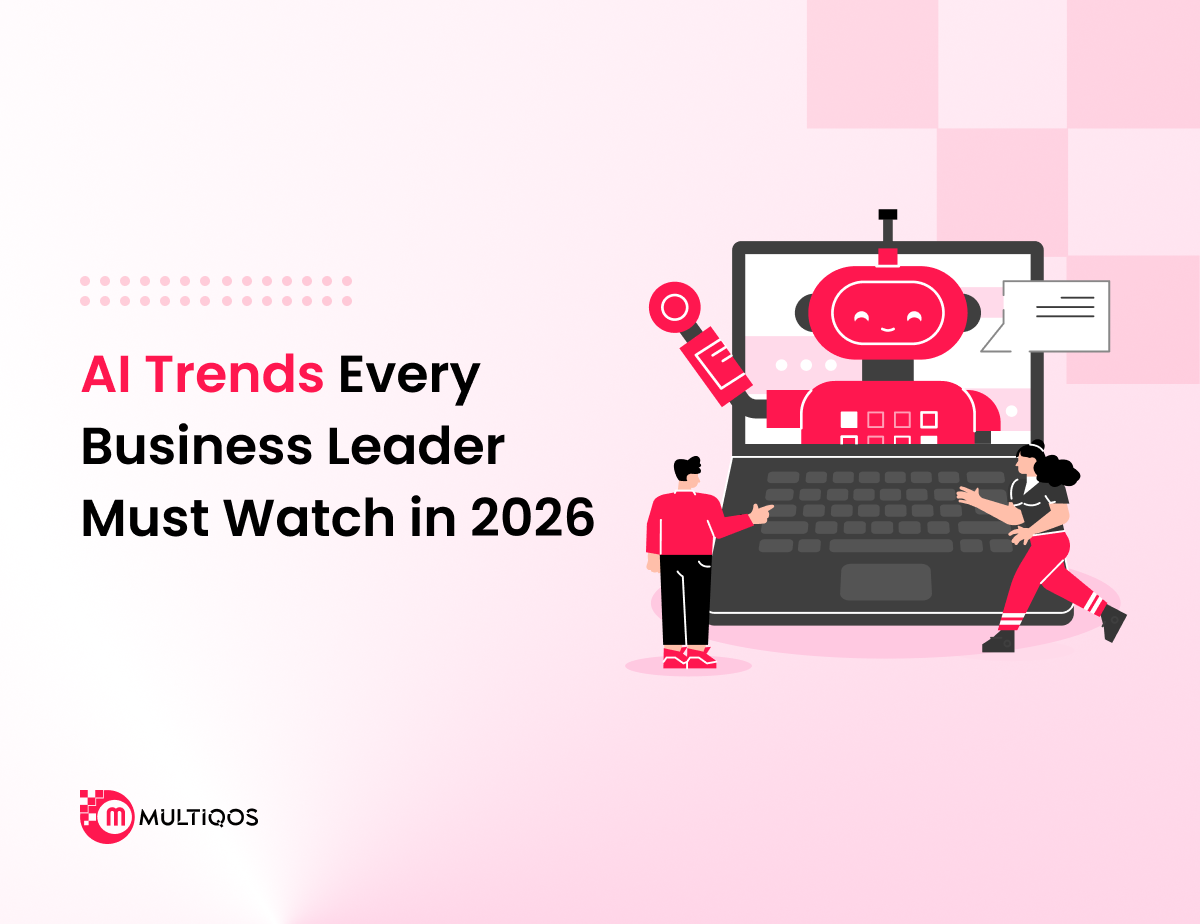How Artificial Intelligence is Transforming Software Development?
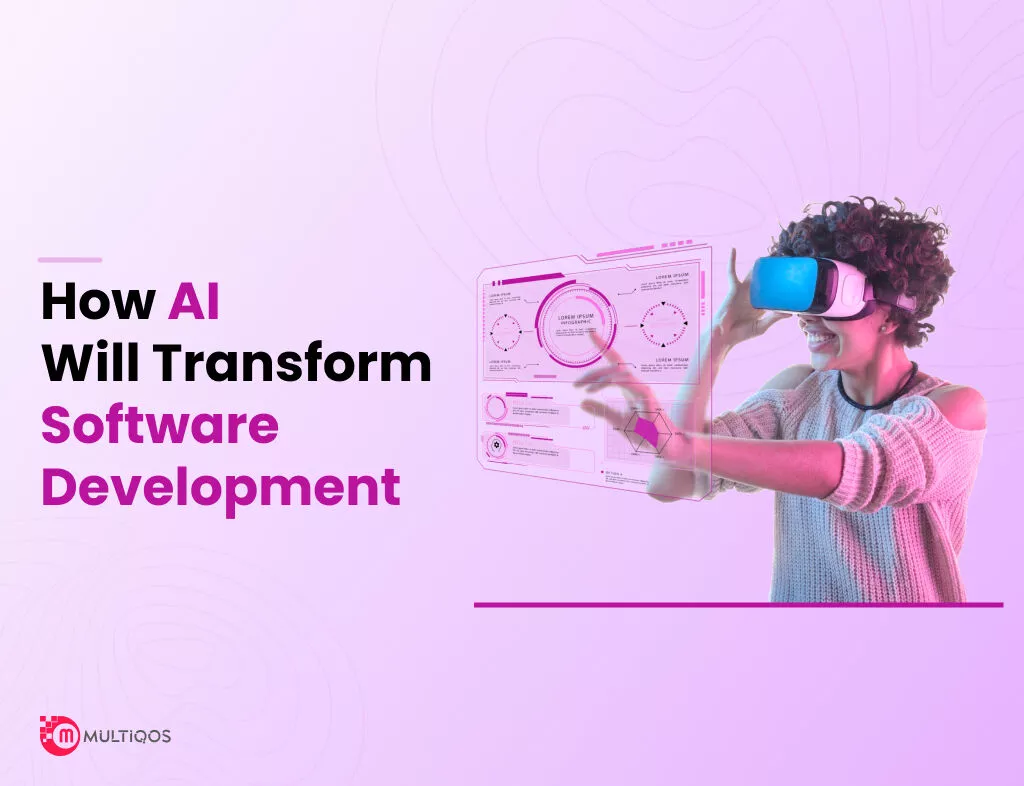
Introduction
Have you ever imagined that shopping sites will recommend you to buy products? Or your food delivery app will know when you are hungry or want to order the food?
No, Even we never imagined that there would be apps for everything. But now we live in the modern era where our every movement is being noticed and tracked by our mobile applications. With the help of such emerging technologies user data is being collected.
By using advanced algorithms such data is used to conduct effective marketing strategies that ultimately do wonders for businesses. It helps them understand what and when is to be served to their customers to improve their ROIs.
And that’s the magic of ARTIFICIAL INTELLIGENCE Technology. Using its advanced algorithms to fine-tune the business model and make it a perfect fit for the new modern era, has become a new norm for businesses.
Though Artificial Intelligence (AI) is not a new hue. But with various innovations and research done on Artificial Intelligence technology, now it becomes a big thing for every industry domain. And the Software development industry is not an exception!
Though Artificial Intelligence (AI) is not a new hue. But with various innovations and research done on Artificial Intelligence technology, now it becomes a big thing for every industry domain. And the Software development industry is not an exception!
You don’t have to trust our words. Our words have a back of such strong market stats.
Market Statistics: How Artificial Intelligence Technology is Becoming a Big Thing for Businesses?
Alexa, Siri, Google Assistants! You all must have accessed any one of these AI-driven devices which uses Voice commands and turn your commands into action.
Well, that was the beginning of AI and now has become an old topic.
How about ChatGPT?
The latest AI-based platform is driving people crazy by simply providing an answer to anything in just milliseconds. So that’s how AI is impacting our lives daily.
Let’s get into the important stats and facts showcasing how AI is becoming a big thing now…
- The global Artificial Intelligence market size is expected to grow at a CAGR of 37% from 2023 to 2030 and is projected to reach $1811.8 billion by 2030.
- 35% of companies are using AI and 42% of companies are expected to adopt AI in the future.
- 91.5% of leading businesses are investing in AI frequently.
Overall it is fair enough to say that there is a widespread adoption of AI in businesses. As it helps automate business processes, increases output, analyzes data, and allows businesses to make informed decisions, therefore more and more businesses are inclining toward AI technology.
But how does Artificial Intelligence benefit software development? Let’s get into it.
How Artificial Intelligence is Reshaping the Software Development Industry?
Software development, traditionally intricate, has been a constant pursuit for simplicity and flawlessness by engineers. The introduction of cutting-edge tools like Artificial Intelligence has significantly eased the process, enabling software developers to swiftly create products of exceptional quality.
In this blog, let’s focus on how AI is improving the workflow of software engineers. Let’s understand it in depth.
Understanding the Benefits of AI in Software Development
Here are the major benefits of AI in Software Development :
-
Efficient Code Generation and Reduces Human Dependency
- AI streamlines the software development process by automating code generation based on predefined parameters.
- Significantly accelerates coding tasks, allowing developers to focus on high-level design and problem-solving.
- Minimizes manual coding efforts, enhancing productivity during the initial phases of project development.
-
Intelligent Requirement Gathering and Extracting Valuable Insights
- AI-driven tools analyze vast datasets to extract valuable insights, aiding in comprehensive project requirement gathering.
- Enhances the accuracy of understanding user needs, leading to more precise and tailored software solutions.
- Reduces the potential for overlooked requirements, contributing to a more efficient and client-satisfying development cycle.
-
Proactive Bugs Identification and Resolution
- AI algorithms continuously analyze code for potential bugs, security vulnerabilities, and performance issues.
- Facilitates early detection and resolution of issues, preventing them from escalating and reaching production.
- Improves software quality by ensuring that common problems are addressed during the development phases, reducing the need for extensive post-production debugging.
-
Automated Testing and Quality Assurance
- AI-powered testing tools automate the testing process, from unit tests to end-to-end testing, ensuring thorough code validation.
- Reduces the manual effort required for testing, allowing developers to focus on refining features and functionality.
- Enhances overall software quality by identifying and addressing defects early in the development lifecycle, leading to more robust and reliable products.
In a nutshell, integrating AI into crucial phases of software development brings about remarkable benefits. From expediting code generation to optimizing requirement gathering, AI not only streamlines processes but also contributes to the creation of higher-quality software.
By automating tasks, identifying issues proactively, and improving testing processes, AI empowers software developers to elevate their focus and deliver more efficient and reliable solutions.
Navigating the Challenges Implementing AI in Software Development and MultiQoS Solutions
There is no doubt that the integration of Artificial Intelligence (AI) into the domain of software development brings various possibilities and efficiencies. However, this transformative journey also comes with its own challenges.
There are various hurdles faced by organizations as they strive to implement AI in software development and explore strategies to overcome these obstacles.
-
Skill Gap and Training
One of the primary challenges is the existing skill gap within development teams. AI demands specialized knowledge and expertise, and many organizations may find their developers lacking in these areas. Bridging this gap requires comprehensive training programs to upskill existing teams or hiring new talent with AI proficiency.
“ That’s where MultiQoS comes into the role and enables clients to hire top 1% pre-vetted AI developers bridging the gap between your requirements and solutions.”
-
Data Quality and Availability
AI algorithms heavily rely on high-quality and diverse datasets for effective training and decision-making. Ensuring the availability of such data and maintaining its quality can be a significant challenge.
Organizations must invest in data governance, quality assurance, and ethical considerations to derive meaningful insights from AI-driven processes.
-
Complexity of Integrating AI into Existing Systems
Many organizations operate with legacy systems that were not designed to accommodate AI. Integrating AI seamlessly into existing software architectures can be challenging and may require substantial modifications.
“ That’s where MultiQoS implements a careful and strategic approach to analyze the existing system, build a solution that is compatible with existing functionalities. But one thing we take care about is to ensure a smooth transition without disrupting current operations.”
-
Cost of Implementation
Implementing AI in software development involves significant upfront costs, including investment in AI technologies, infrastructure, and talent. Small to medium-sized enterprises may find it challenging to allocate resources for this transformation.
MultiQoS provides a perfect solution to the organizations interested in implementing AI in existing applications. Whether you are planning to create an app from scratch with AI-compatibilities or want to upgrade it with the latest AI features, we allow our customers to opt for flexible engagement models to hire AI developers based on hourly, monthly and fixed billing.
-
Data Security Concerns
As AI becomes more integrated into software development, the attack surface for cyber threats expands. Security concerns, such as adversarial attacks on AI models, data breaches, and privacy issues, become more pronounced.
To protect your intellectual property, we take under consideration all the security measures and priorities to safeguard AI-driven systems. When you are implementing AI in software development with the help of our AI experts, keep in mind that your project is in safe hands.
Now the big question is, what industries and areas are using it and make the best benefit of AI technology?
Let’s uncover it in the next section…
What Industries and Major Areas Where AI Capabilities are Being Used
AI capabilities are making a substantial impact across various industries and key areas. From healthcare and finance to manufacturing and education, AI is being utilized to enhance processes and outcomes.
Let’s check out how AI is transforming industries and their operations. In addition, here we learn how AI is innovating the processes and making it a pivotal force in today’s technological landscape.
Here are some key industries and areas where AI is making a significant impact:
Healthcare and Medical Industry and Their Core Areas:
- Diagnosis and Imaging: AI is used for medical image analysis, helping in the early detection of diseases through techniques like computer vision.
- Drug Discovery: AI accelerates the drug discovery process by analyzing vast datasets to identify potential drug candidates.
Banking and Finance Industry and The Areas Impacted by AI Technology:
- Algorithmic Trading: AI algorithms analyze market trends and execute trades at high speeds, optimizing investment strategies.
- Fraud Detection: AI systems identify patterns indicative of fraudulent activities, enhancing security in financial transactions.
Retail and Ecommerce Industry and The Impact of AI on Business Strategies:
- Personalized Shopping: AI-powered recommendation engines analyze customer behavior to provide personalized product suggestions.
- Supply Chain Optimization: AI is used for demand forecasting, inventory management, and logistics optimization.
The Role of Artificial Intelligence in Manufacturing Industry:
- Predictive Maintenance: AI analyzes equipment data to predict when machinery is likely to fail, minimizing downtime and maintenance costs.
- Quality Control: Computer vision and machine learning enhance quality control processes by identifying defects in real-time.
Automotive Industry and The AI’s Impact on It:
- Autonomous Vehicles: AI is a cornerstone in the development of self-driving cars, enabling real-time decision-making based on sensor inputs.
- Predictive Maintenance: AI helps predict maintenance needs for vehicles, improving reliability and reducing unexpected breakdowns.
Education Industry and AI’s Advancement:
- Personalized Learning: AI tailors educational content to individual students, adapting to their learning styles and pace.
- Administrative Tasks: AI streamlines administrative tasks, such as grading and scheduling, allowing educators to focus on teaching.
Telecommunication Industry And The Role of AI on It:
- Network Optimization: AI optimizes network performance by analyzing data traffic patterns and predicting potential issues.
- Customer Support: Chatbots and virtual assistants powered by AI enhance customer support by providing quick and efficient responses.
Marketing and Advertising Industry and The Impact of AI:
- Targeted Advertising: AI analyzes consumer behavior to deliver personalized and targeted advertisements.
- Content Creation: AI-generated content, including text and visuals, helps marketers automate and enhance their creative processes.
Cybersecurity and The Areas Impacted By AI:
- Anomaly Detection: AI identifies abnormal patterns in network traffic to detect potential security threats.
- Behavioral Analysis: AI analyzes user behavior to identify deviations from normal patterns, flagging potential security breaches.
Human Resources And the Role of AI:
- Recruitment and Talent Acquisition: AI streamlines the hiring process by analyzing resumes, assessing candidate fit, and even conducting initial interviews.
- Employee Engagement: AI tools analyze employee feedback and sentiment to enhance engagement and satisfaction.
Oil, Gas and Energy and The Areas Impacted By AI:
- Predictive Maintenance: AI helps optimize the maintenance of energy infrastructure, reducing downtime and improving efficiency.
- Grid Management: AI analyzes data to optimize energy distribution, improving overall grid performance.
These examples showcase the diverse applications of AI across industries, emphasizing its role in driving innovation, improving operational efficiency, and solving complex problems. As AI continues to evolve, its impact is likely to expand further, influencing new sectors and revolutionizing existing processes.
Conclusion: How Does MultiQoS Help You Implement AI Capabilities in Software Development?
In the dynamic landscape of technology, AI stands as the cornerstone of our present and the catalyst for the future. Seamlessly integrated into our daily lives, both personally and professionally, AI’s transformative influence poses challenges and opportunities for software developers.
The impact of Artificial Intelligence continually amplifies their collective power. Notably, developers now leverage specialized AIs to create new iterations, completing a technological circle that signifies interconnected growth.
While AI simplifies developers’ tasks, its integration demands elevated skill levels. MultiQoS, with its adept team, navigates complex AI-related cases, offering a spectrum of AI development services across industries.
Embark on an innovative journey with MultiQoS to unlock the transformative advantages of Artificial Intelligence in your software solutions. Contact us for a future where AI seamlessly enhances efficiency and innovation.
Ready to Build Your Custom Software Development?
MultiQoS excels in tackling complex software challenges with a blend of strategic thinking and technology solutions.
FAQ on AI in Software Development
Artificial Intelligence streamlines software development by automating tasks like code generation, testing, and bug detection. It accelerates processes, allowing developers to focus on higher-level tasks, ultimately improving efficiency and productivity.
AI aids in intelligent requirement gathering, ensuring a more accurate understanding of user needs. This leads to the creation of tailored solutions, reducing the risk of overlooked requirements and enhancing overall client satisfaction.
The integration of AI can have a positive impact on the overall cost of software development. While there may be initial investments in AI technologies, automation and efficiency gains often lead to long-term cost savings.
AI can streamline processes, reduce manual labor, and minimize the need for extensive post-production debugging, contributing to a more cost-effective development lifecycle.
AI plays a crucial role in identifying and addressing issues early in the development cycle, improving overall software quality. In terms of security, AI assists in detecting vulnerabilities, ensuring that the final product is robust and less prone to cyber threats.
Get In Touch

